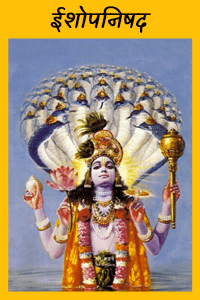Read Isavasyopanishad in English

The Isavasyopanishad: A brief introduction
Ishavasyopanishad, also known as 'Ishopanishad', forms part of the last chapter of the Shukla Yajurveda and ranks first among the major Upanishads. It is known in two versions: Kanva (VSK) and Madhyandina (VSM). This Upanishad consists of a total of 17 or 18 verses, and is presented in the form of a concise poem. It is an important text of the Vedanta sub-schools and is an influential sruti for various schools of Hinduism.
the main topic:
Introduction to Upanishads:
The Isavasyopanishad is the last chapter of the Shukla Yajurveda.
It is also known as 'Ishopanishad'.
Shankaracharya has especially praised it in his commentary.
It is considered to be the essence of Vedanta.
Antiquity and Importance:
This is one of the oldest Upanishads.
On its basis other Upanishads have developed.
Quotation of its verses is found in Brihadaranyaka Upanishad.
Its findings have also been used in Bhagavad Gita and Ramcharitmanas.
Contents:
Discussion on the Atman (Self) principle.
Referred to by both Dvaita (dualism) and Advaita (non-dualism) sub-schools.
The text begins with “Isha Vasyam” or “Covered by God”.
detailed description:
The first mantra of Ishavasya Upanishad “Isavasyam Idam Sarvam” means “This entire world is the abode of God.” It states that God is present everywhere and the main message of this Upanishad is that every person should do selfless work and stay away from any kind of greed or unrighteousness.
This Upanishad is considered to be the essence of Vedanta as all its verses explain in detail about Brahman, self-knowledge and attainment of salvation. This Upanishad is a unique poem written in Sanskrit language, in which deep philosophical meanings are hidden.
conclusion:
Ishavasya Upanishad is a very important Upanishad which provides guidance on the path of knowledge, self-knowledge and salvation. In this, the omnipresence of God, the eternity of the soul, and the importance of selfless action have been explained in detail. By studying and meditating on it, peace and stability can be achieved in life.